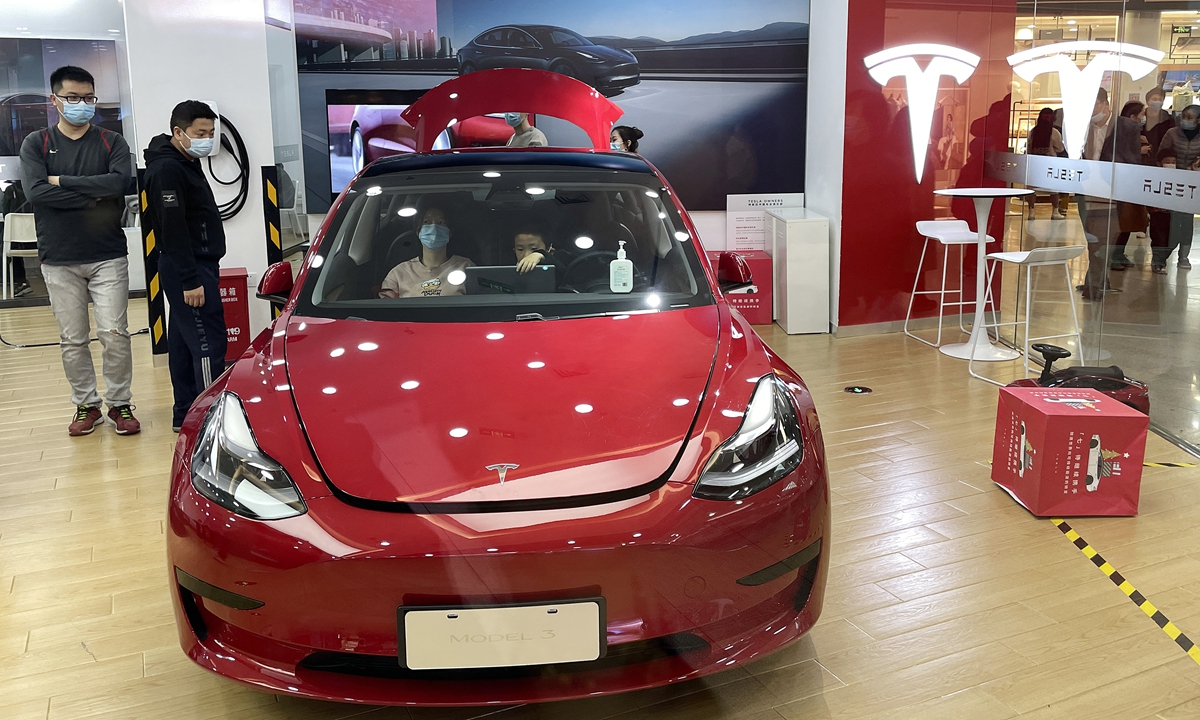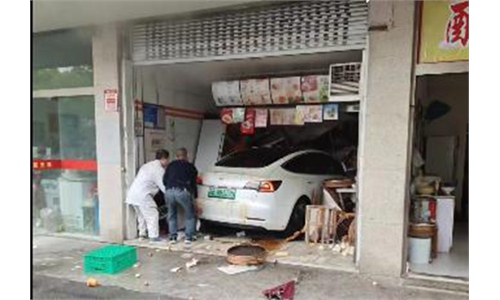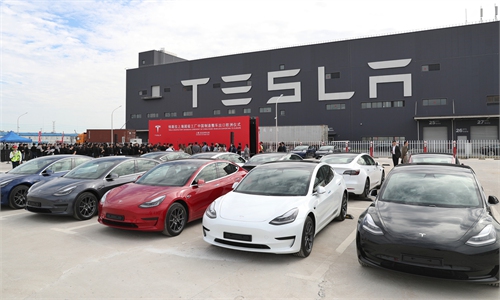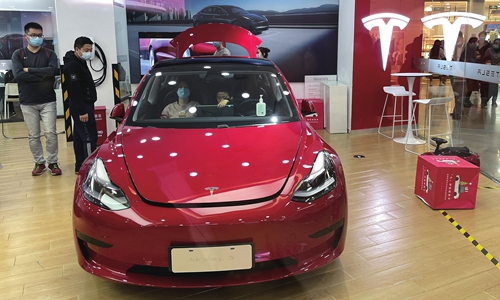
People sit inside a Tesla car displayed at a store in Beijing. Photos: VCG
In the latest statement made public on Wednesday, Tesla said it has actively reached out to the Tesla car owner who protested at the Shanghai Auto Show, and proposed further communication to address the consumer's grievances.
The company said it is also willing to carry out third-party investigation under the supervision of the regulators. The same Tesla statement went into details as to how the Tesla car owner "defended her rights" despite the company's communication efforts in the past months after the car was caught in an accident.
It seems that US carmaker is trying to crash through its biggest public relations crisis in China, but it appears to be doubling down on allegations that car owner might have been overacting and unreasonable, as the statement focused on how it repeatedly tried to reach out to the owner.
If anything, the approach taken by Tesla toward complaint handling is not too offensive as its initial response looked like.
Previously, Tao Lin, vice president of Tesla China, reportedly lashed out against the Tesla car owner who climbed on top of a show car's roof at one of the biggest auto shows in China to protest against what she claimed to be a brake malfunction. Tesla responded, saying it "will not compromise" against the protestor's "unreasonable demand."
It is the aggressiveness of Tesla's previous response - some call arrogance - that had led to a hailstorm of criticism in the country of Tesla's poor public relations job.
Awed by the negative public opinion storm, Tesla decided to change its attitude, and, its willingness to make a step forward toward making more communications with the consumer should be welcome. Judging from Chinese netizens' comments over Tesla's latest statement, the company appears to have overcome its biggest public relations challenge in many years.
But that doesn't necessarily mean an end to Tesla's crisis in China. For starters, Tesla is facing closer scrutiny of the quality of its EVs. Last week, another car accident involving a Tesla sedan surfaced online, which reportedly occurred in mid-April in Guangzhou and killed one. Tesla needs to take more actions to not only properly address the consumers' complaints, but also address public concerns about the quality of its cars. Failure to do so may leave a stain on its brand image in the Chinese market in the long run.
Secondly, even if the vehicles involved in the accidents turn out to be without defect, it may not extinguish public concerns over whether Tesla's training for car owners and its after-sale communication was flawed. Such questions actually highlighted the company's weakness in its localization push.
While China has become an important sales market for Tesla, in contrast to other multinationals, the company hasn't made any China-tailored strategy for local consumers. In the first quarter of this year, Tesla sold 69,000 vehicles in China, accounting for 38 percent of its global sales. And its future market potential will hinge on whether or not its customer services can keep up with the company's sales growth.
Now that public perception about Tesla as an industry bellwether has hit a speed-bump. To regain trust and reputation in the Chinese market, Tesla must offer Chinese customers greater transparency about its product quality and better service attitude. How to navigate the complex Chinese market and introduce more localized service improvement will test the wisdom of the car company.



